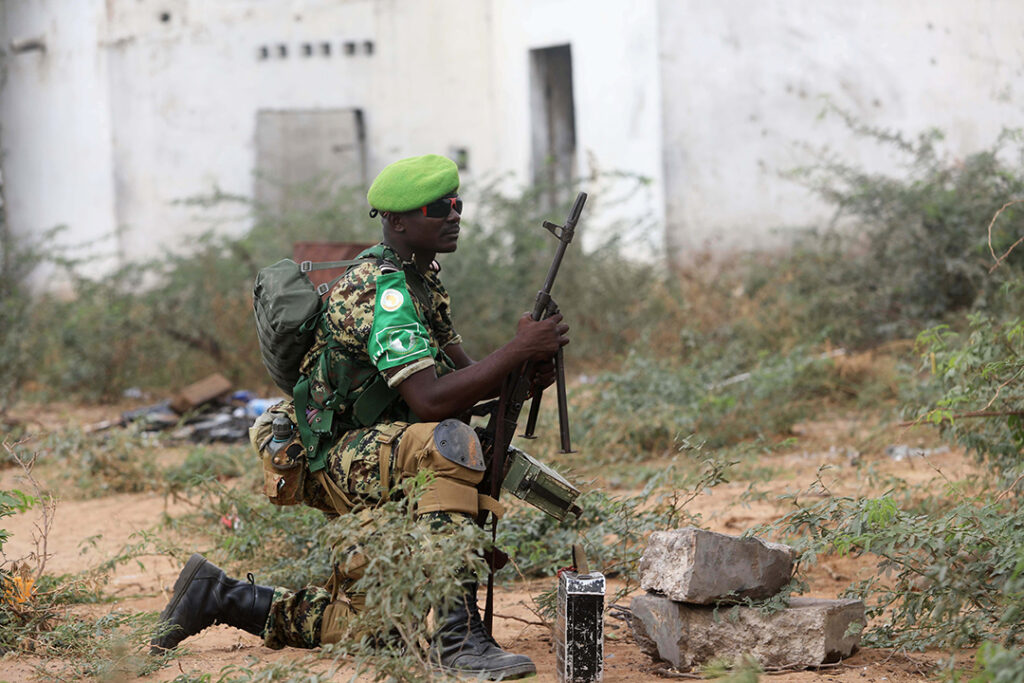ADF STAFF
Amid a recent surge of terrorism in Somalia and the continued lack of adequate state security forces, the need for peacekeepers remains high.
Time is running out, however, on the African Union Mission in Somalia (AMISOM), which is set to expire December 31.
The AU and the government of Somalia do not agree about what the mission should look like moving forward.
On October 10, the AU’s Peace and Security Council (AUPSC) announced its intention to form a joint mission with the United Nations and allow “other willing and interested AU Member States” to join the operation.
The council expressed “grave concern at the worsening security situation in Somalia, which has seen a worrying resurgence in the activities of al-Shabaab and other terrorist groups in large parts of the country and has detracted attention from the critical processes of state-building and stabilization.” Two days later, Somalia rejected the plan, which also needs the approval of the U.N. Security Council.
In a statement, Somalia’s Ministry of Defense expressed its own “grave concern at the AUPSC continued disregard of Somalia’s sovereignty, territorial integrity and political independence by repeatedly pursuing an agenda that undermines the agenda of the AUPSC and violates the basic rights of a member state.”
AMISOM, a regional peacekeeping force, was created in 2007 by the AUPSC with U.N. approval. Its nearly 20,000 troops have come from Burundi, Djibouti, Ethiopia, Kenya, Sierra Leone and Uganda.
AMISOM’s mission to stabilize the country and help build the capacities of the Somali National Army and the country’s police forces shifted in 2010 to directly engage al-Shabaab.
The al-Qaida-linked Islamist insurgency launches frequent, deadly attacks against civilian and military targets and controls large parts of rural areas in central and southern Somalia.
AMISOM has wrestled with persistent funding issues that have seen Burundi and Uganda threaten to withdraw troops.
Currently, the mission is not financed by the U.N. but instead by international donors.
Troop-contributing countries such as Kenya have expressed support for reconfiguring AMISOM into a joint mission with the U.N.
“Kenya’s strategic interest in Somalia has purely been to see a peaceful Somalia and its neighbors, therefore our presence in Somalia is not only desirable but a matter of national interest,” AMISOM Sector II commander, Brigadier Jeff Nyagah, said to Kenyan newspaper The Nation.
“AMISOM cannot be here forever. At a certain point in time, we will have to exit and leave the responsibility to Somali people.”
While Somalia grapples with its ongoing security crisis, its leaders are engaged in a political crisis of their own. President Mohamed Abdullahi Mohamed and Prime Minister Mohamed Hussein Roble disagree over the correct strategy for security and upcoming elections, which have been postponed indefinitely.
The AUPSC statement urged the two to settle their differences and “refocus on concluding the overdue elections without further delay.”
“The ongoing political stand-off between the Office of the President and the Office of the Prime Minister is contributing to the worsening security situation, as the political authorities find their attention distracted from governance matters.”

